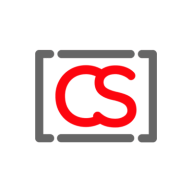

SonarQube and CodeSonar compete in the code analysis market. SonarQube appears to have an edge due to its extensive language support and integration capabilities, making it suitable for diverse multi-language projects.
Features: SonarQube supports over 20 programming languages and includes integration features like pre-commit checks, custom coding rules, and unit test capabilities. It also tracks technical debt and has a vibrant community support system. CodeSonar, meanwhile, focuses on identifying security threats and runtime errors, offering a precise analysis for security-focused environments.
Room for Improvement: SonarQube could enhance its security features, improve UI design, and facilitate faster analysis times. Better integration with tools like JIRA and broadened security support would also be beneficial. CodeSonar can improve by expanding language support beyond C and C++ and offering more advanced static analysis tools to compete with other market options.
Ease of Deployment and Customer Service: SonarQube provides a flexible deployment model, including on-premises and cloud environments, supported by extensive documentation and an active community. However, its technical support can be less proactive. CodeSonar is primarily deployed on-premises and offers structured support, though its deployment model is less flexible than SonarQube’s.
Pricing and ROI: SonarQube offers valuable pricing models with a free community edition and cost-effective paid options, providing strong ROI for early fault identification in the development lifecycle. CodeSonar, while more expensive and tailored for securing critical environments, offers good ROI by catching security flaws early on. However, its pricing may be a hindrance for smaller organizations compared to SonarQube, which is more accommodating in balancing cost with comprehensive code analysis.
| Product | Market Share (%) |
|---|---|
| SonarQube | 16.9% |
| CodeSonar | 1.2% |
| Other | 81.9% |

| Company Size | Count |
|---|---|
| Small Business | 5 |
| Midsize Enterprise | 1 |
| Large Enterprise | 2 |
| Company Size | Count |
|---|---|
| Small Business | 41 |
| Midsize Enterprise | 24 |
| Large Enterprise | 79 |
GrammaTech enables organizations to develop software applications more efficiently, on-budget, and on-schedule by helping to eliminate harmful defects that can cause system failures, enable data breaches, and ultimately increase corporate liabilities in today’s connected world. GrammaTech is the developer of CodeSonar, the most powerful source and binary code analysis solution available today. Extraordinarily precise, CodeSonar finds, on average, 2 times more serious defects in software than other static analysis solutions. Designed for organizations with zero tolerance for defects and vulnerabilities in their applications, CodeSonar provides static analysis for applications where reliability and security are paramount - widely used by software developers in avionics, medical, automotive, industrial control, and other mission-critical applications. Some of GrammaTech's customers include Toyota, GE, Hyundai, Kawasaki, LG, Lockheed Martin, NASA, Northrop Grumman, Panasonic, and Samsung.
SonarQube leads automated code review, enhancing code quality and security in AI-driven SDLCs. It analyzes pull requests, providing developers with actionable feedback and AI-driven fixes before code merges. Trusted by top enterprises, it supports SaaS and self-managed deployments.
SonarQube supports a wide range of programming languages and integrates seamlessly with CI/CD tools like Jenkins. It is renowned for its static code analysis, code coverage, and security vulnerability detection. While its open-source foundation and scalability are praised, users seek enhanced integration across multiple languages, better security features, and improved documentation. Despite challenges, its ability to automate code inspections and ensure compliance with coding standards makes it essential in software development processes, facilitating continuous improvement.
What are the most important features?In industries like finance, healthcare, and automotive, SonarQube is leveraged for static code analysis, automating code inspections, and ensuring compliance with stringent standards. Teams integrate it into their CI/CD pipelines to maintain high-quality code, identify security vulnerabilities, and enhance code maintainability.
We monitor all Application Security Tools reviews to prevent fraudulent reviews and keep review quality high. We do not post reviews by company employees or direct competitors. We validate each review for authenticity via cross-reference with LinkedIn, and personal follow-up with the reviewer when necessary.